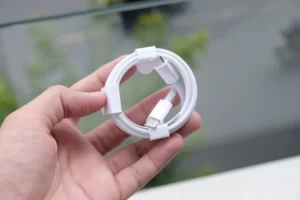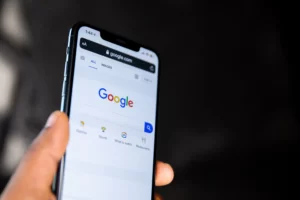Are you concerned about your online security and privacy? You’re not alone. With the increasing amount of data breaches and hacking attempts, it’s important to take steps to protect your sensitive information online. One of the best ways to do that is by using a VPN. But what exactly is a VPN, and how does it work?
What is a VPN and How Does it Work?
VPN stands for “virtual private network.” It’s a service that allows you to securely connect to the internet by routing your connection through a remote server. When you connect to a VPN, your device creates a secure and encrypted connection to the VPN server. From there, your traffic is sent out to the internet as if it’s coming from the VPN server, rather than your own device. This helps to hide your IP address and encrypt your online traffic, making it much more difficult for anyone to intercept your data.
Why Should You Use a VPN?
There are several reasons why you might want to use a VPN. One of the biggest reasons is to protect your online privacy. By encrypting your traffic and hiding your IP address, a VPN can help prevent websites, internet service providers, and other third parties from tracking your online activity.
Another reason to use a VPN is to access content that might be blocked or restricted in your region. For example, if you’re traveling to a foreign country and want to access streaming services like Netflix or Hulu, you might be blocked from doing so due to regional restrictions. With a VPN, you can connect to a server in a different country and access that content as if you were physically located there.
How to Choose a VPN Provider
When it comes to choosing a VPN provider, there are several factors to consider. One of the most important is security. You’ll want to choose a provider that offers strong encryption and a strict no-logging policy to ensure that your data is kept safe and secure.
You’ll also want to consider the provider’s server locations and speed. If you’re planning on using the VPN to access content from a specific region, make sure the provider has servers in that location. And if you’ll be using the VPN for activities like streaming or gaming, you’ll want to choose a provider with fast connection speeds.
Finally, consider the provider’s pricing and customer support. Some VPNs offer free versions, while others require a paid subscription. Make sure you choose a provider that fits your budget and offers quality customer support in case you need help.
Common VPN Protocols
One of the most important aspects of a VPN service is the security protocols it uses to encrypt and protect the data transmitted over the network. There are several common VPN protocols that have different advantages and disadvantages in terms of speed, compatibility, and level of security. Some of the most widely used VPN protocols are:
- OpenVPN: This is an open-source protocol that uses the OpenSSL library and SSL/TLS encryption to create a secure tunnel between the client and the server. It is highly configurable and adaptable to various network conditions and firewalls. It also supports multiple authentication methods and encryption algorithms. OpenVPN is considered one of the most secure and reliable VPN protocols available.
- IKEv2/IPSec: This is a protocol that combines the Internet Key Exchange version 2 (IKEv2) with the IP Security (IPSec) protocol to establish and maintain a secure connection between the client and the server. It uses strong encryption and authentication mechanisms and supports mobility and reconnection features. It is also compatible with most platforms and devices.
- L2TP/IPSec: This is a protocol that combines the Layer 2 Tunneling Protocol (L2TP) with the IPSec protocol to create a secure tunnel between the client and the server. It uses IPSec encryption and authentication to protect the data, while L2TP encapsulates the data packets for transmission. It is compatible with most platforms and devices, but it may be slower than other protocols due to the double encapsulation.
- PPTP: This is one of the oldest and simplest VPN protocols that uses the Point-to-Point Tunneling Protocol (PPTP) to create a secure tunnel between the client and the server. It uses a basic encryption method called Microsoft Point-to-Point Encryption (MPPE) to protect the data. It is easy to set up and compatible with most platforms and devices, but it is also very vulnerable to attacks and not recommended for security purposes.
Conclusion
In conclusion, a VPN is a crucial tool for anyone who values their online privacy and security. By encrypting your internet traffic and masking your IP address, a VPN can keep your personal information safe from prying eyes, prevent ISP throttling, and even allow you to access content that may be restricted in your region.
When choosing a VPN, it’s important to consider factors such as security protocols, server locations, and logging policies. Additionally, be sure to choose a VPN that’s compatible with all of your devices and offers fast connection speeds.
Overall, using a VPN can provide a much-needed layer of protection and peace of mind in an increasingly connected world.
FAQ
Q: Can I use a VPN on my mobile device?
A: Yes, you can use a VPN on your mobile device. Most VPN providers offer apps for both Android and iOS devices. Simply download the app, log in, and connect to a server.
Q: Is it legal to use a VPN?
A: In most countries, it is legal to use a VPN. However, it’s important to note that some countries have restrictions on VPN usage or may even ban VPNs altogether. It’s important to research your local laws and regulations before using a VPN.
Q: Does a VPN slow down my internet speed?
A: Yes, using a VPN can slow down your internet speed to some extent. However, the degree of slowdown depends on several factors, including the distance between your device and the VPN server, the level of encryption used, and the VPN provider itself. In some cases, the slowdown may be negligible, while in others it may be more significant.
Q: Can I use a VPN to access streaming services like Netflix?
A: Yes, you can use a VPN to access streaming services like Netflix. However, some streaming services actively block VPN traffic, so it’s important to choose a VPN provider that is known to work with these services.
Q: How do I choose a VPN provider?
A: When choosing a VPN provider, there are several factors to consider, including security features, server locations, logging policies, and speed. It’s also important to read reviews and compare prices to find the provider that best meets your needs.
Q: Can I use a free VPN?
A: While there are some free VPN providers available, it’s important to be cautious when using them. Free VPNs may be less secure and may log your activity, and they may also be more likely to contain ads or malware. It’s generally recommended to choose a paid VPN provider for better security and privacy.





More Stories
NotebookLM: Google’s new AI-powered notes app that helps you learn faster
How Microsoft wants to transform the way consumers use its operating system
Why gamers will love Windows 11 and why others will hate it